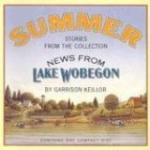The little play-house, that has since been removed to the croquet-ground, once stood not far from this rock, and has been used, as I said, by Gabrielle as a menagerie for her pets. A strange assortment they often were for a little girl. Inheriting her mother’s exquisite tenderness of feeling towards helpless animals, Gabrielle would splinter and bandage up the little legs of any baby robin or sparrow that had met with an accident from trying its wings too early, would nurse it till well, and then let it fly away. At one time she had in the play-house a little regiment of twelve toads, a red squirrel, and a large turtle. Aunt Mary never wished her to cage her pets, as she thought it cruel; consequently they had the range of the play-house, and Gabrielle fed them very conscientiously. She ought, however, to have followed the example of St. Francis, who used to preach to animals and insects when he had no human audience, and given her pets a daily dissertation upon brotherly love and tolerance, for they did not, I regret to say, live together in the Christian harmony that distinguished Barnum’s Happy Family. The result was, that one day when Gabrielle went to minister to their physical wants, she found only a melancholy debris of little legs. Her supposition was that the turtle had consumed the toads and then died of dyspepsia, and that the squirrel had by some unknown means escaped from the play-house, and returned to primeval liberty.
[Illustration: The Children’s Play House.]
Forgetting this sad experience, Gabrielle endeavored at another time to bring up a snake and a toad in the way they should go (this time in an empty hen-coop); but the snake certainly did depart from it, and astonished the family much by gliding into the kitchen with the unhappy toad in his mouth. Poor Gabrielle’s feelings can be imagined. She endeavored courageously to wrest the toad from its enemy’s jaws, but all in vain; she was obliged to see the hapless creature consumed by the snake.
Mamma has often described Aunt Mary to me as she looked when she first met her. The portrait mamma draws of her as a bride would scarcely be recognized by those who only knew her after long years of weary illness had
“Paled her glowing cheek.”
I will give it in mamma’s own words:
“Immediately after your uncle’s marriage, he sent for me to come from my parents’ quiet farm in Pennsylvania, to spend the winter in the city with himself and his wife. A great event this was to me—far greater than your first visit to Europe, for the journey occupied double the time that is now spent between New York and Liverpool, and I was a young girl whose acquaintance with the world was confined to the narrow limits of the little village of Clymer; I had never even been sent away to boarding-school.




